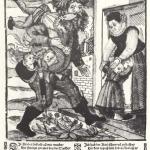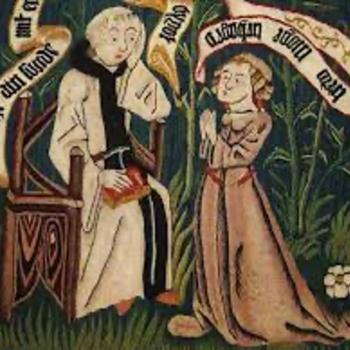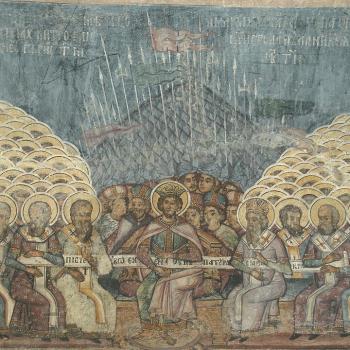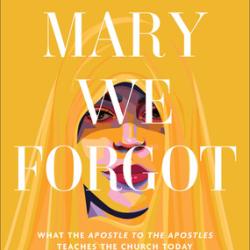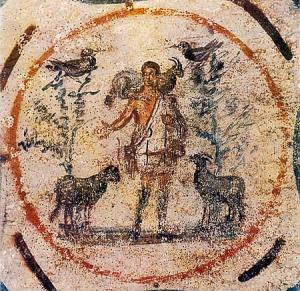
On Sunday, July 2, 2023, we attended service for the last time in our beloved local church of seven years. There is nothing wrong with the church. It is thriving; reaching people in the community; loving members old and new, young and old; sending out missionaries near and far; and preaching the gospel faithfully and beautifully every Sunday.
Its care for children and families, in my view, has been an example other churches should follow, as I wrote here just last month. But after thirteen years in Carrollton, GA for me, and eighteen years here for Dan, we are moving half-way across the country for Dan to begin a new position elsewhere. One cannot commute to church ten hours each way on a Sunday, so this really is a goodbye. It hurts.
We had put down deep roots in Carrollton. Neither Dan nor I have ever lived anywhere else as long as we have lived here. But as academics, we had moved here, to this town and university we had never heard of before reading the respective job ads, because this was where each of us had received a job. And yet, while it was work that brought each of us here, it was the local church, less than five minutes’ drive from our house, that made this place, unknown to us before, a true home. In my case, it was also while living here in Georgia that I, previously a secular Jew, came to Christ almost twelve years ago. This means that I have spent more than fifty percent of my Christian life in this church.
We’ve made deep friendships here, bonds formed over our shared experiences worshiping together, praying for each other, and just doing life together: so many wonderful meals; raising small children and then increasingly older children; homeschooling together; celebrating weddings and new babies with showers and parties and sip-and-sees; and yes, mourning some losses.
When an ultrasound revealed a devastating surprise six years ago at a 20-week appointment—that my baby, who had been healthy and thriving at the previous appointment now had no heartbeat—it was another mom friend from our church who dropped everything she was doing at the time and drove over an hour to the hospital where I was for the night, waiting to deliver a dead child. Other friends from church took our two older sons at short notice, caring for them to allow my husband to be with me.
Meals quietly appeared on our doorstep over the next two weeks, as people wanted to care for us during this grief but did not want to force me to talk to them during a time so raw. For the next year, another friend from church mailed me pamphlets every three months, each about coping with a different stage of grief over such a loss. And when, two years later, we were expecting again, so many prayed for our baby through the fear that hung over that entire pregnancy. Her name, Mercy, is a reminder of God’s mercy for her and us, a mercy for which the local body of Christ prayed with us and for us.
But mostly, we have bonded with our church community over the little things that form everyday life. For life, most of the time, is decidedly mundane in its challenges and joys. Formed not of peaks and valleys, it can seem more of an exhausting slog. And in that slog, we have always had fellow travelers, ready to text back with a good joke, quip, or meme, if we needed to complain or just wanted to tell someone about yet another ridiculous thing a toddler did.
Like that time when my then three-year-old daughter got stuck up in the magnolia tree by the church building after services let out one Sunday, and another mom walking by heard her crying and climbed up to get her down. We have loved the different community groups of which we have been a part and will deeply miss the friendships we have developed with so many Christians whose faith has encouraged our own. And words cannot describe how grateful we are for the pastors and elders of this church, who have shepherded and prayed over this flock, including us, so beautifully and faithfully.
Too often, news stories about evangelical churches focus on everything that has been going wrong, and there has indeed been plenty. As a result, calls to reform–or burn it all down–abound. To be fair, this is the same with any other institution, whether a corporation or a university. Mainly the awful stuff, the scandals and the abuses make it into news; no one talks about it if things are going well. As a result, the news coverage, focused as it is on the tragedies, can also create the mistaken impression that this awful stuff is all that there is in evangelical churches.
Yes, to be clear, the abuses are real. They really happen, and it is terrible when they do. I am not denying that, and we cannot ignore those who suffer. Those wrongs cry out for justice. But these stories of horrible wrongs that make it into the news or the abuse reports are not the only thing that is happening in evangelical churches. For seven years in our local PCA church, all my family and I have known has been love, care, friendships, and the steady stream of gospel teaching, preaching, and encouragement.
And so, it is a bittersweet goodbye. We mourn the loss of this church so beloved to us and pray that we will find a new church where we can serve and flourish. But as an ancient historian, I also find comfort and delight in the historically close connection that Christians in various local churches across a vast empire cultivated since the first century—connections to each other locally, but also to others far away. Their connection was facilitated, among other things, through those who traveled or moved for various reasons from one region to another—Paul, Lydia, Priscilla and Aquila, and so many others whose names we do not know—bringing with them at times letters to pass along to new neighbors from mutual friends, and eager to meet new friends with whom to share good news.
We are decidedly no apostles, and Ashland, Ohio is comparably churched to Carrollton, Georgia. And yet, the analogy helps. It reminds us that God has created us all for community, starting with the first people in the garden already. And so, while we mourn the community we are leaving behind, we look forward to the new friendships we will make and promise to have a guest room ready for any friends who ever come through town.



